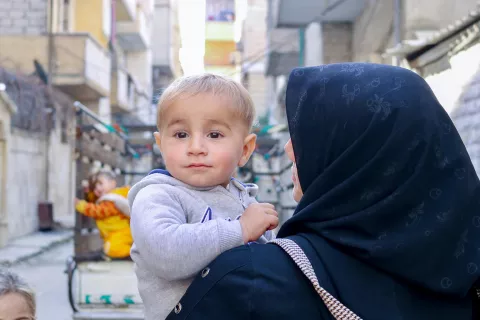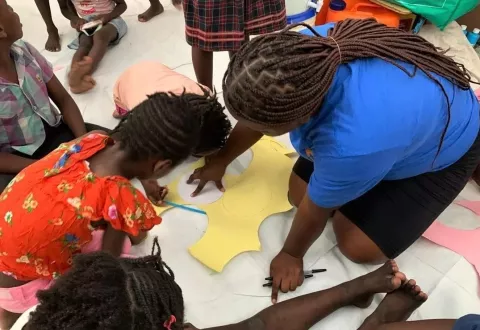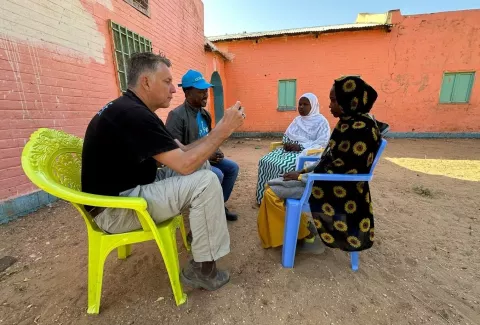Fleeing violence in Syria
Escalating violence in northwest Syria has left tens of thousands of children at imminent risk of injury, death and displacement.
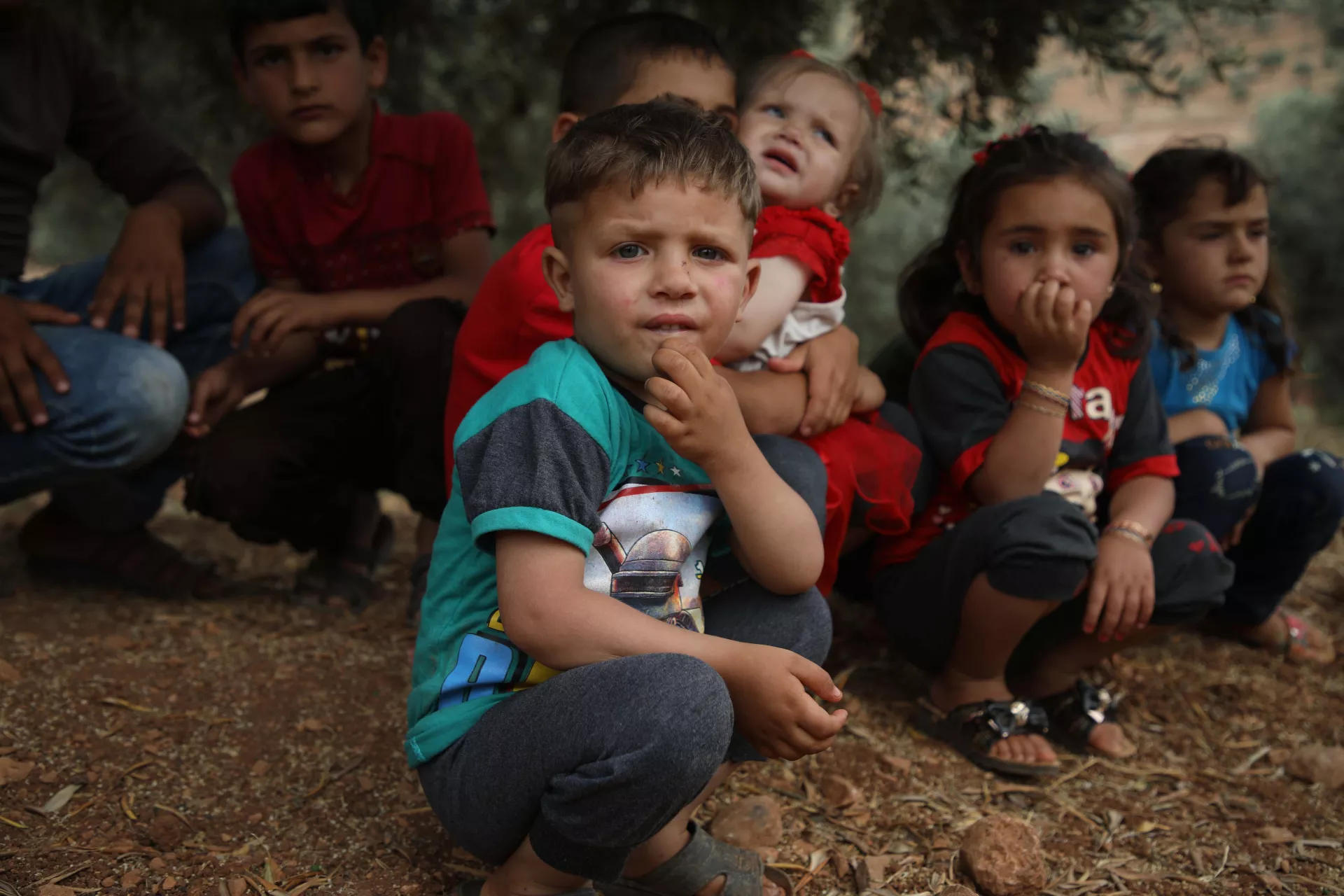
AQRABAT and ATMEH, Syria – Eid al-Fitr, the holiday marking the end of Ramadan, is supposed to be a moment for celebration. But for children uprooted by escalating conflict, the usual festivities have been replaced by uncertainty and fear – and talk of ice cream and toys by stories of conflict and explosions.
In the villages of Aqrabat and Atmeh, near Syria’s border with Turkey, hundreds of children and their families spent Eid in makeshift camps. With little more than blankets and bed sheets hung from olive trees to protect them from the elements, the children shared their families’ stories.
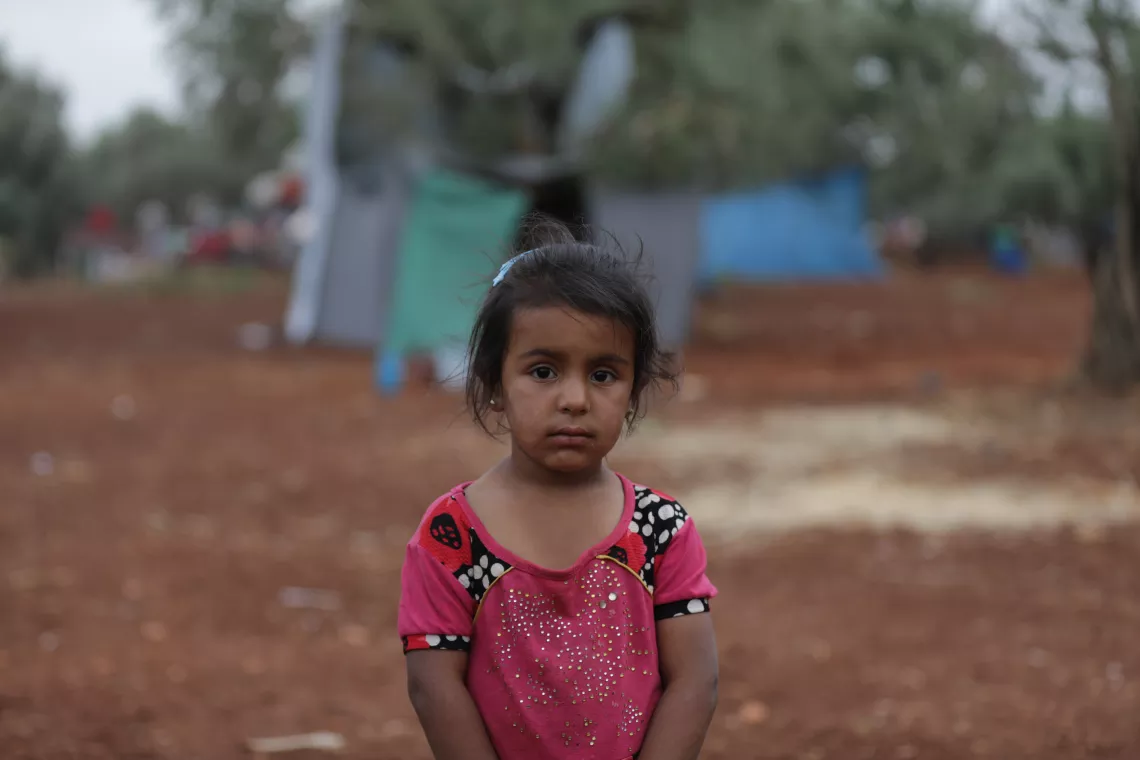
“We can’t celebrate it [Eid] here,” says five-year old Siba. “We used to have nice food and I would get ice cream and a new doll on this day. I wish my parents and I could go to the amusement park like we usually do.”
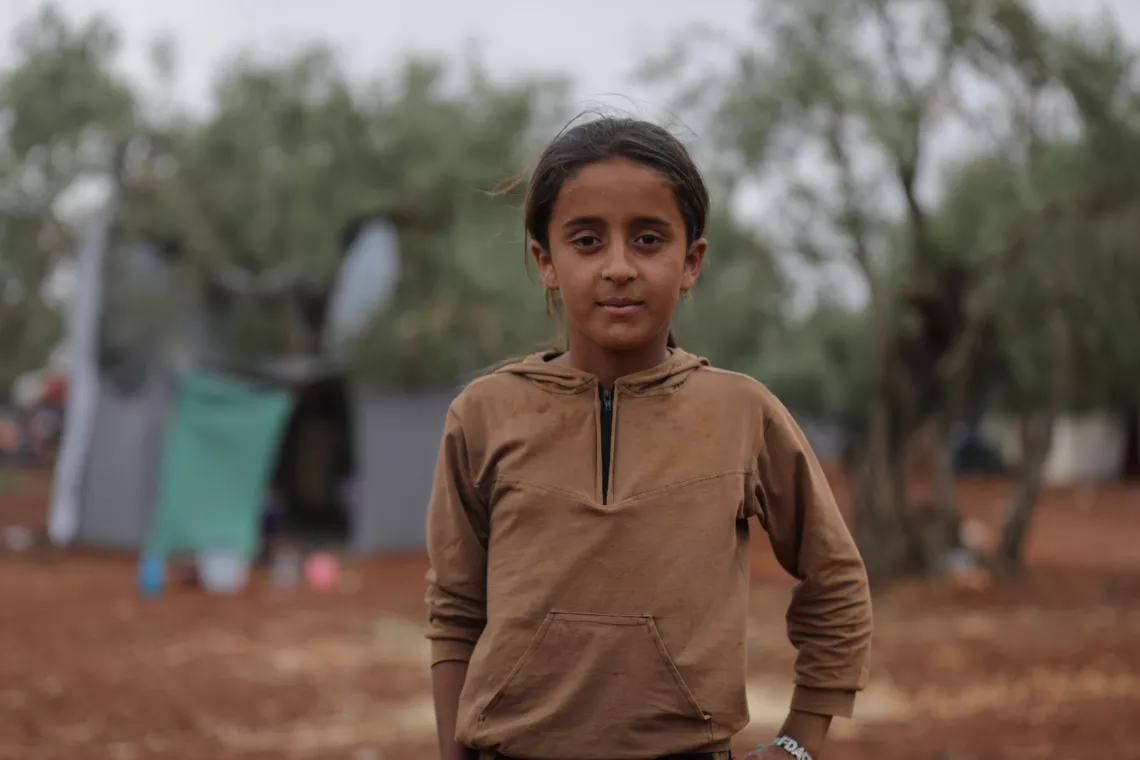
Fidaa, 11, also wishes she was back home – and that things were back to normal. “I don’t have any clothes now,” she says. “Every year on Eid we’d buy new clothes and get a new toy. But we have to spend this Eid in a field. There’s nothing here that makes us feel like we’re celebrating.”
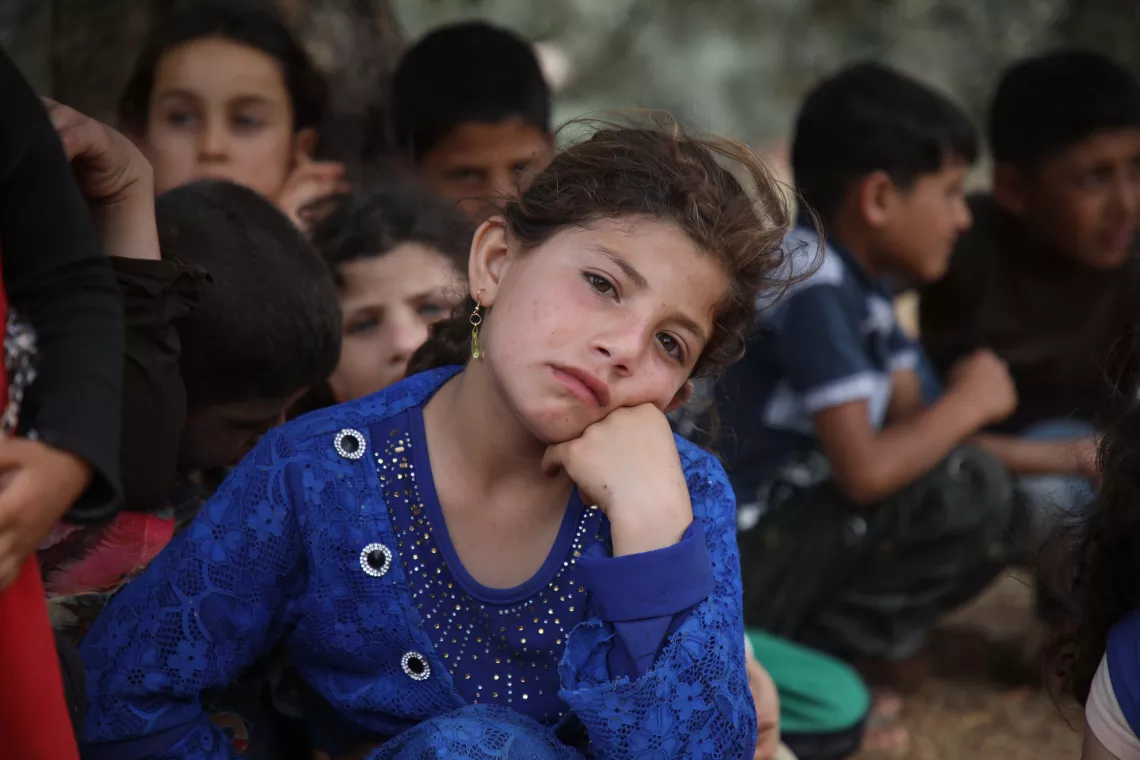
The latest escalation violence, especially in villages in northern Hama and southern Idlib in northwest Syria, follows months of rising violence in the area and has reportedly left at least 134 children dead and more than 125,000 displaced since the start of the year. Some 43,000 children are now out of school and final exams in parts of Idlib have been postponed, affecting the education of 400,000 students.
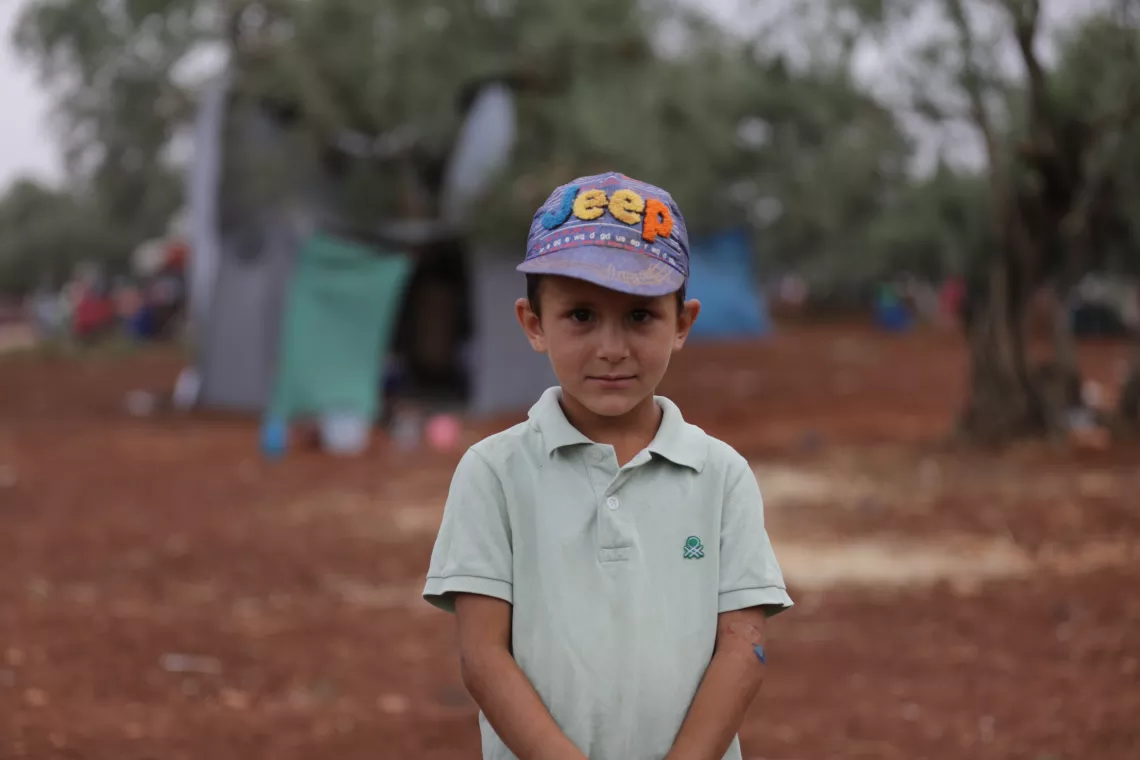
“My parents told me that we can’t go back home until the fighting stops,” says six-year-old Ghadeer, from northern Hama. “We left our house very quickly because there were so many loud explosions.”

“I want to bring the toys I left back home,” says eight-year old Yamin. “I had a new bicycle as well. But we can’t go back because there was so much fighting. We left quickly. We didn’t take anything with us.”
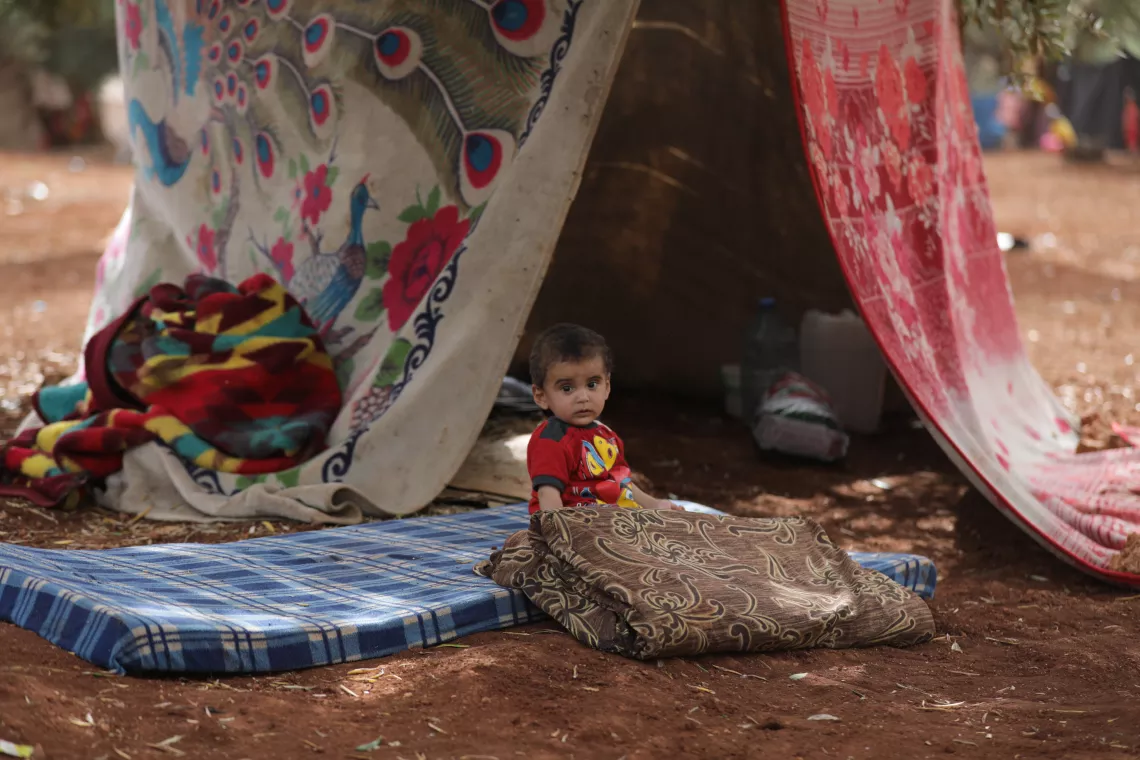
UNICEF’s partners are on the ground in the northwest of Syria, working to reach children and families with mobile health clinics, immunization and nutrition services, water and sanitation supplies, as well as essential psychosocial support.

